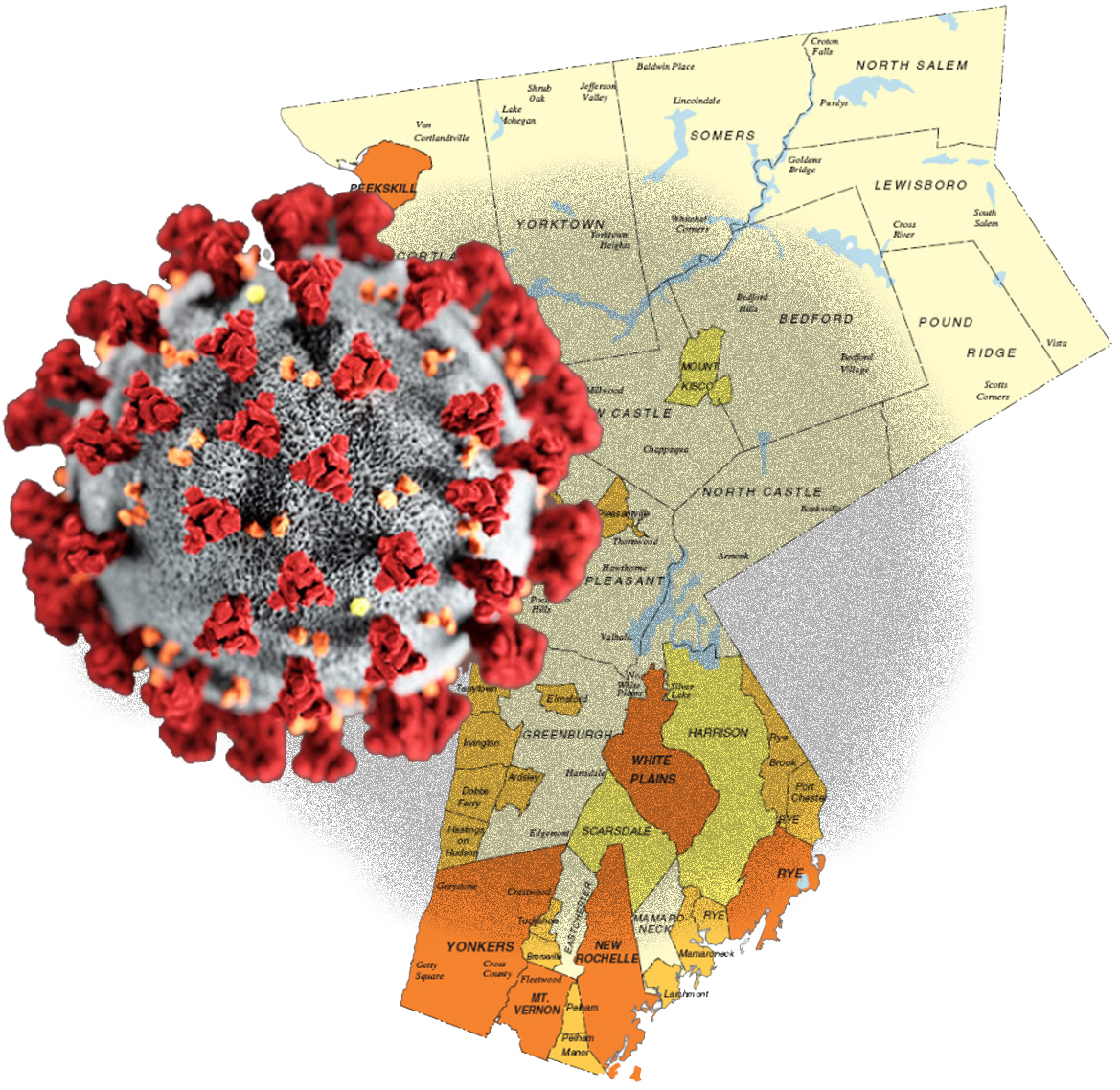COVID-19 UPDATE: Trump declares national emergency: Cases rise to 158 in county; some local venues close
Ӣ Westchester: 158
Ӣ New York City: 154
Ӣ Nassau: 41
Ӣ Suffolk: 20
Ӣ Rockland: 7
Ӣ Ulster: 4
Ӣ Saratoga: 3
Ӣ Orange: 1
Ӣ Dutchess: 1
Ӣ Albany: 1
Ӣ Broome: 1
Ӣ Delaware: 1
Ӣ Herkimer: 1
Ӣ Monroe: 1
Cuomo also announced that gathering places with a seating capacity of up to 500 would have to reduce their maximum occupancy to half of what it normally is. He said that gatherings involving more than 500 people would not be permitted in New York state.
The Broadway League said that ticketholders for performances through April 12, 2020, should contact their point of purchase for refunds or exchanges.
Cuomo said that the reduced seating capacities for venues other than Broadway theaters would go into effect at 5 p.m. today (March 13). The capacity rules would not apply to schools, hospitals, nursing homes or mass transit facilities.
Nationwide, the National Hockey League and National Basketball Association, both suspended their season play. Also canceled were the NCAA tournaments.
Cuomo announced new rules governing nursing homes and assisted living facilities. All staff will have to wear masks, staff will have to be monitored for symptoms of the virus, no nonmedical staff will be allowed to enter except for special circumstances and visitors would have to wear protective gear.
“If you care about someone in a nursing home, the last thing you want to do is endanger that person,” Cuomo said.
Cuomo said that the state would not be able to compensate businesses for loss of business. He said to do so would bankrupt the state.
Cuomo said the ridership on mass transit is down. Metro-North has seen a 48% drop in ridership. The New York City subways are down 18.5% and the buses are down 15%. Risdership on the Long Island Rail Road has dropped by 31% and traffic at bridges and tunnels was down by 7%.
State Health Commissioner Howard Zucker said that, in all of New York state as of noon on Thursday, 2,314 people had been tested for COVID-19. He said 2,000 people statewide are in quarantine.
Yonkers Raceway closed on Wednesday after John Brennan, the Standardbred Owners Association of New York director representing horsemen at Yonkers, died of the coronavirus. Brennan, 69, was a resident of New Jersey. Yonkers Raceway asked all of its employees who worked in the immediate area to self-quarantine.
A day earlier, Cuomo said the state “will guarantee two full weeks of paid leave” for all state workers who are subject to a mandatory or precautionary order of quarantine. This will apply to all state employees, regardless of civil service classification, bargaining unit, and regardless of part time or accrual status.
On Tuesday, in announcing the containment zone for New Rochelle, Cuomo said it would be one-mile in radius (two miles across) and that all buildings in that zone would be prohibited from allowing large public gatherings to take place.

Schools within that zone would be closed. People would be be able to move about and leave the zone. Cuomo said the thrust of the containment zone would be to prevent large gatherings of people where the virus might be further spread.
National Guard personnel would be used to assist if needed in performing various functions within the zone,, such as delivering food. Cuomo said that they would not be performing any policing functions.
Cuomo said the Northwell lab that he visited on Sunday would be setting up a satellite facility in New Rochelle to handle testing for COVID-19 on the spot. He also said Northwell had received permission from the federal government to begin automated testing for the disease at its lab on Long Island.
The zone went into effect March 12 and will remain in place for at least two weeks.
“It is a dramatic action, but it is the largest cluster (of COVID-19) in the country. This is literally a matter of life and death,” Cuomo said.
Westmed Medical Group reported Monday evening that one of its health care providers has tested positive for coronavirus. The individual works at Westmed’s facility at 210 Westchester Ave. in White Plains.

Cuomo said that he is preparing a bill to send to the state Legislature that would require all businesses in New York to offer paid sick leave to employees. He will be asking for immediate action to get it passed.
Cuomo said that not providing paid sick leave gives employees who might be infected an incentive to come to work, possibly exposing others to the virus.
As for the shortage of hand sanitizer on store shelves, Cuomo said that the state has arranged for production of a sanitizer named NYS Clean. It is being produced by Corcraft, a company operated by the state”™s Department of Correctional Services, Division of Industries.
He also encouraged New Yorkers to work from home, telecommute and avoid densely populated spaces whenever possible to help contain the spread of the virus.
The governor had declared a state of emergency on March 7, which allows:
Ӣ expedited procurement of cleaning supplies, hand sanitizer and other essential resources;
Ӣ qualified professionals other than doctors and nurses to conduct testing;
Ӣ expedited procurement of testing supplies and equipment;
Ӣ expedited leasing of lab space;
Ӣ EMS personnel to transport patients to quarantine locations other than just hospitals; and
Ӣ a clear basis for price gouging and enforcement investigation. The Division of Consumer Protection has created an online form for anyone who wishes to file a complaint at https://www.dos.ny.gov/consumerprotection/.
Staff writer Bob Rozycki contributed to this report.